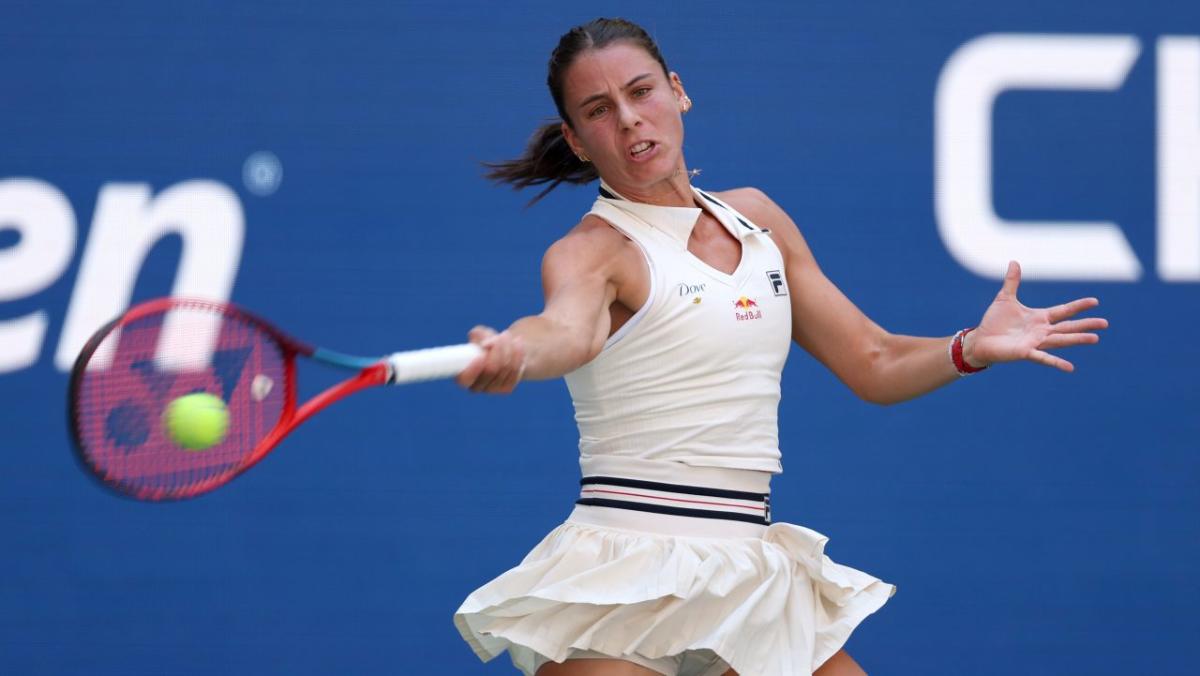Emma Navarro reached her first career Grand Slam semifinal after beating Paula Badosa in straight sets on Tuesday. After the victory, she credited her father, Ben, whom she considers her biggest fan and supporter and the one who “had the vision” when the former star player was young.
Navarro’s father is also one of the country’s biggest buyers of consumer debt. She confirmed what has long been known: Being the daughter of a billionaire financier has its advantages, especially in the sports world.
More from Sportico.com
“I had access to the courts at a young age … I had coaches that helped me,” she told reporters Tuesday. “It definitely played a role in me being where I am today, and I’m super grateful that I had those resources as a kid.”
Navarro’s story, however, is not unique among this year’s quarterfinalists. The other American still in the women’s draw, Jessica Pegula, is the daughter of Terry and Kim Pegula, owners of the Buffalo Bills, Buffalo Sabres and several minor league hockey teams. Terry made his fortune drilling for natural gas and has a net worth of $7.7 billion, per Forbes.
Navarro, who attended one of South Carolina’s top private schools (Ashley Hall), grew up with far more wealth than her peers and opponents on the field—except for Pegula, of course. Ben, the son of former Ivy League football coach Frank Navarro and founder of private equity firm Sherman Financial Group, is known as a low-profile, privately held billionaire but is still a well-known figure in the sports world. The former Citigroup vice president previously tried to buy the Carolina Panthers but ultimately lost out to hedge fund owner David Tepper, who bought the NFL franchise in 2018 for a then-record $2.2 billion.
The businessman has since planted deeper roots in tennis, acquiring the Cincinnati Open two years ago for $270 million through his family office investment company Beemok Capital (Navarro entered the event last month). The purchase of the men’s and women’s tennis events expanded Ben’s portfolio, which already included the Charleston Open.
While Navarro realizes she’s had an easier path than others, she refuses to acknowledge that her father’s deep money is the main reason for her success on the field.
“I had access to resources as a kid, but I don’t want that to take away from the fact that I’ve worked really hard to get to where I am,” she said. “I’ve put in a lot of hours and I started working out, I’ve been going to the gym since I was 8, 9 years old.”
Pegula, now a seven-time quarter-finalist at a Grand Slam, resisted the idea that her life is fundamentally different from that of her peers.
“People think I have a butler, that I get chauffeured around, that I have a private limousine, that I fly privately everywhere,” Pegula said at a news conference. “I’m not like that at all. People can think whatever they want … it’s a little annoying, but honestly I just find it funny because I don’t really know anyone who lives like that.”
In the men’s event, American semifinalist Taylor Fritz is the great-great-grandson of David May, who founded the May Department Stores Company, which merged with Macy’s. His mother, Kathy May, was herself a former top-10 tennis player, and his father and uncle were both professional players. Fritz grew up in an affluent neighborhood of San Diego.
His semifinal opponent, fellow countryman Frances Tiafoe, comes from a very different background. His parents emigrated from Sierra Leone, his mother working as a nurse and his father as a construction worker at a youth tennis facility. Tiafoe and his brother lived with their father in an empty office downtown, and Tiafoe was enrolled in the tennis clinic there for free at age 5.
Wealth, however, helped Tiafoe rise to the top, as he was sponsored by billionaire Bill Ackman, the founder and CEO of Pershing Square Capital Management, after the two met in 2013. “It’s unbelievable. He’s done so much for me,” Tiafoe said in a 2015 interview with Bloomberg. “He gave me the opportunity to play all over the world and not have to worry about finances at all.”
Tiafoe’s inspiring journey nevertheless shows the importance of access and resources for aspiring young players in tennis, which is an expensive sport. Costs for coaching, court time, rackets, strings, tournament fees, travel and accommodations add up, all before players begin to make money from their performances.
Even once players are on the professional tour, expenses often exceed income for years. Rising young American Brandon Nakashima told the Los Angeles Times in 2022 that his budget for the year could reach $500,000. Only 93 male and 84 female tennis players have earned that much prize money so far in 2024.
Navarro and Pegula may claim to have had relatively normal upbringings, but the fact that two of the last eight women at the US Open were born into billionaire lineups is no coincidence.
The best of Sportico.com
Sign up for the Sportico newsletter. Follow us on Facebook, Twitter and Instagram for the latest news.




